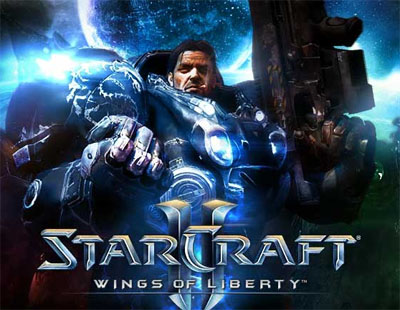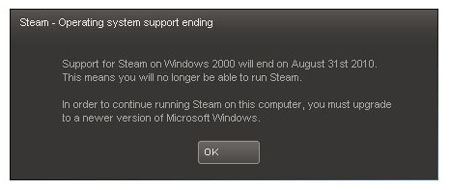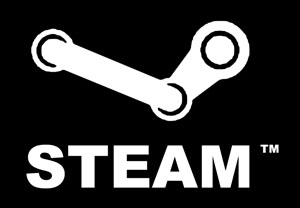
Frank Pearce, executive producer of Starcraft II and co-founder of Blizzard, told Videogamer.com:
“The best approach from our perspective is to make sure that you’ve got a full-featured platform that people want to play on, where their friends are, where the community is.
“That’s a battle that we have a chance in. If you start talking about DRM and different technologies to try to manage it, it’s really a losing battle for us, because the community is always so much larger, and the number of people out there that want to try to counteract that technology, whether it’s because they want to pirate the game or just because it’s a curiosity for them, is much larger than our development teams.
“We need our development teams focused on content and cool features, not anti-piracy technology.”
This statement makes perfect sense.
First, the only people DRM actually hurts are legitimate customers. The pirates, after all, strip the DRM off the games and no longer have to deal with any of its hassles.
Second, even if a foolproof system of DRM were to be created (and Ubisoft may be coming close by treating single player games as if they were multiplayer games), the nature of DRM is deeply inimical to the rights of common citizens. You have a right to the fair use of copyrighted material you buy, and DRM strips you of those rights.
Third, Pearce’s assessment is correct: The best way to encourage people to be legitimate customers instead of pirates is to (a) make them want to be your customer and (b) offer a superior product. DRM gets in the way of both goals.
So Frank Pearce is absolutely right: DRM is a losing battle.
From the same article:
Starcraft II, due out on July 27, requires a one-off activation and a registered Battle.net account.
Online activation?
That’s what DRM is.
In fact, it’s exactly the sort of onerous DRM system which is inherently unethical.
It suffers from the same problem as all activation-based DRM: If Blizzard goes out of business or decides to shut down their activation servers, the installation DVD becomes a worthless coaster.
My current car is a Saturn Ion. GM recently shut down their Saturn divison. Imagine if my car needed to call up the (now defunct) Saturn Activation Servers every time I put the key in the ignition. Would any sane person tolerate that?
Ah, but Blizzard’s system is so much more reasonable, right? My Ion only needs to contact the Saturn Activation Server once and it’ll work forever… until my battery dies (or, in the cast of Starcraft 2, I need to reinstall the software). I replace the battery only to discover that the activation servers are gone and — ta-da! — my car is worthless.
And here we see the long con of DRM:
One of the first big efforts to push out activation-based DRM was the DIVX disc format: Buy a DIVX disc for cold hard cash. Then, whenever you want to watch it, pay another $4. And the disc would only play if your DIVX player was plugged into a phone line and connected with the DIVX activation servers.
Fortunately, people weren’t stupid: They flocked to the DVD format. Even though the discs were more expensive, people were willing to pay more in order to be able to control their own access to and use of their privately owned movie libraries. Even after DIVX abandoned its re-activation fees (while still offering cheaper discs), people stuck with the DRM-free DVD standard. And everyone who was stupid enough to buy DIVX was punished (as all supporters of DRM formats are inevitably punished): The DIVX servers were shut down in 2001 and all of those movies people had bought turned into coasters.
But now DRM is beginning to see wider and wider acceptance, particularly in the gaming market. And one of the reasons can be seen in Frank Pearce’s bald-faced lie: The game publishers have been pushing ever more onerous versions of DRM. They’re trying to see just how far they can go before public becomes completely outraged, and then they’ll pull back.
But they don’t actually pull back all the way: They just pull back a bit. And everyone cheers because Blizzard says DRM is a waste of time and they won’t have any DRM on Starcraft II… despite the fact they still have DRM on Starcraft II.
That’s the long con.
The game publishers are treating us all like lobsters and they’re trying to boil us alive by slowly raising the temperature of the pot.
And make no mistake. If you’re sucker enough to fall for it, you will boil alive. Because even if the corporations stick around, they aren’t going to keep the servers active: Everyone who bought DRM-laden songs from MSN Music got screwed in 2008 when Microsoft shut down the servers.
I own a vast library of media: Thousands of books, CDs, movies, and computer games line the walls of my home. And the majority of them were published by companies that no longer exist. Which means that if those products required an activation server for me to use them, they would be useless to me. (Not to mention all the other books, albums, movies, and games which were produced by companies who would no longer be supporting the activation servers for them.)
So as much as I’d like to play Starcraft II, I won’t be. And I encourage you to do the same. Because if you’re willing to support the publishing companies in taking away your own rights, you’ll have no one to blame but yourself when you get screwed.














